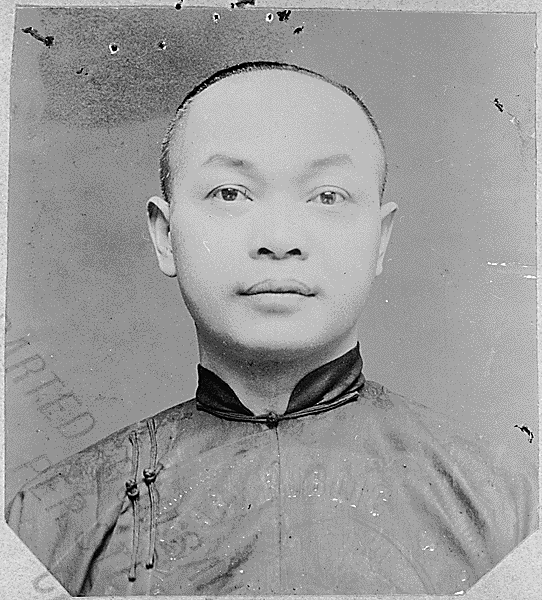 Another blog post I am woefully late on (but did post the video on YouTube shortly afterwards). I had attended the 125th anniversary back on March 25th commemorating and celebrating the landmark Supreme Court decision of U.S. vs. Wong Kim Ark:
Another blog post I am woefully late on (but did post the video on YouTube shortly afterwards). I had attended the 125th anniversary back on March 25th commemorating and celebrating the landmark Supreme Court decision of U.S. vs. Wong Kim Ark:
“Wong Kim Ark, who was born in San Francisco in 1873, had been denied re-entry to the United States after a trip abroad, under a law restricting Chinese immigration and prohibiting immigrants from China from becoming naturalized U.S. citizens. He challenged the government’s refusal to recognize his citizenship, and the Supreme Court ruled in his favor, holding that the citizenship language in the Fourteenth Amendment encompassed the circumstances of his birth and could not be limited in its effect by an act of Congress.”
I had first learned of Wong Kim Ark maybe 5 years ago while reading a review of a documentary about birthright citizenship. I had just assumed that this was because of the Fourteenth Amendment. In reality, it was re-affirmed and codified into law because of this case.
This celebration and commemoration occured in Chinatown in San Francisco and rightfully so. I had sent out my YouTube video of the commemoration to all of my Asian American and political friends, especially those in the San Francisco Bay Area, along with a lawyer I knew, along with this Washington Post article about the 125th anniversary:
“U.S. government officials considered citizenship claims by native-born children of Chinese immigrants to be an end run around the 1882 Chinese Exclusion Act, the racist federal law that barred most Chinese immigrants from entering the United States. Wong became the government’s “test case” — chosen with the goal of defeating birthright citizenship for the children of “undesirable” immigrants.
…
Wong relied on the Citizenship Clause to defend his right to remain in the United States. Wong was born in San Francisco around 1870, the son of Chinese immigrants who were barred by federal law from naturalizing based on their race. He lived in the United States most of his life, working as a cook and a laborer. Wong knew he was an American at birth.But when Wong tried to return home after a visit to China in August of 1895, his government barred him from entering, denying his citizenship despite conceding his birth in the United States.
…
But the Fourteenth Amendment’s Citizenship Clause was written in race-neutral terms. Conrad was forced to argue against citizenship for the children of all noncitizen parents on the ground they were not “subject to the jurisdiction” of the United States, as that Clause requires. This breathtaking claim would have stripped citizenship from hundreds of thousands of people born in the United States to immigrant parents.It was also wrong. As members of the Reconstruction Congress explained in 1866, the narrow exception to birthright citizenship applied only to the children of diplomats and those born into Native American tribes, who were under the “jurisdiction” of a separate sovereign and did not need to comply with all U.S. laws. In contrast, immigrants and their children living in the United States were and are required to follow all federal and state laws or face criminal and civil penalties and so are fully “subject” to the nation’s “jurisdiction.”
After deliberating for over a year, on March 28, 1898, the Supreme Court rejected the government’s argument and held that the native-born children of immigrants are citizens at birth. Wong’s victory was a surprise coming from a court that two years earlier had upheld “separate but equal” in Plessy v. Ferguson, and that frequently ruled against a group it referred to as the “obnoxious Chinese.””
I was surprised that my SF Bay Area political friends were not aware of the Wong Kim Ark case. It made me think of SF City Attorney David Chiu’s remarks at the event that a Hollywood film should be made about him. I was especially surprised that some lawyer friends didn’t know because I thought this would be taught in law school.
In any case, I was especially moved to see that some direct descendants of Wong Kim Ark were in attendance – literally living history. One of the joys over the years while I’ve been blogging for 8Asians is to educate myself and share about all the historic and interesting events and Asian Americans I’ve come to learn about, especially in the San Francisco Bay Area, where some of the first Asian Americans became deeply rooted in the United States.





